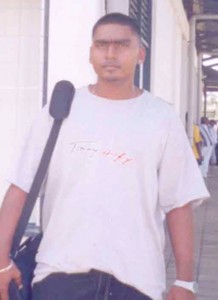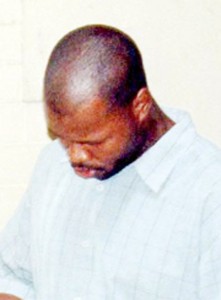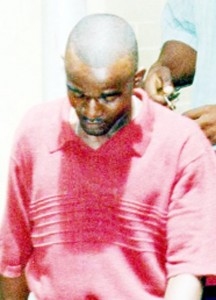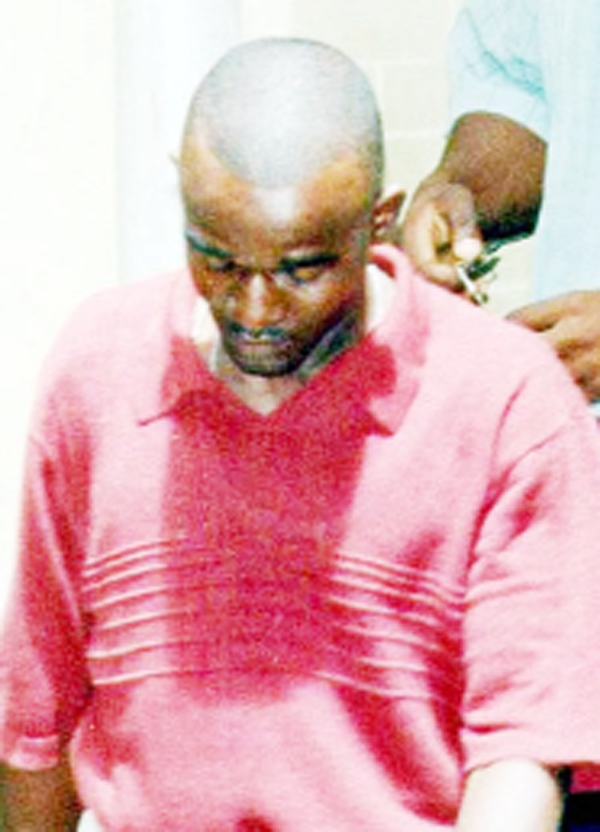By Melissa Charles
Justice Jainarayan Singh Jr yesterday quashed Magistrate Priya Sewnarine-Beharry’s committal of two soldiers to stand trial for the murder of Guyana Defence Force (GDF) Cadet Amar Rajcumar, ruling that there was insufficient evidence for the men to stand trial.
He ordered that they immediately be released from custody and Christopher Harmon and Kurt Trotman walked out of the dock relieved and into the arms of smiling family members who gave thanks to God.
 On April 11, 2006, the 21-year-old Rajcumar had collapsed after a training session at Base Camp Stephenson, Timehri. Rajcumar, a former Presidential Guard, had only joined the GDF nine months earlier.
On April 11, 2006, the 21-year-old Rajcumar had collapsed after a training session at Base Camp Stephenson, Timehri. Rajcumar, a former Presidential Guard, had only joined the GDF nine months earlier.
An army release had said that following his collapse, the cadet was immediately taken to the base’s medical centre. He was referred to the Georgetown Public Hospital where he was pronounced dead on arrival around 2:45 pm the same day.
A post-mortem examination had found, among other things, that Rajcumar died from a blow to the head. Following a month-long investigation, Harmon and Trotman were charged with his murder.
On August 6, 2007, at the end of the preliminary inquiry (PI), which Magistrate Sewnarine-Beharry presided over at the Providence Magistrate’s Court, she had ruled that a prima facie case had been made out against the two soldiers and committed them to stand trial in the High Court. However, their lawyers moved to the court on December 28, 2007 and on December 31, 2007, Justice Singh granted a temporary order or rule nisi of certiorari staying the committal.
 The order directed Magistrate Sewnarine-Beharry to show cause why her decision to commit the men to stand trial should not be quashed. A second temporary order was issued to the magistrate, for her to show cause why the men should not be released from custody immediately.
The order directed Magistrate Sewnarine-Beharry to show cause why her decision to commit the men to stand trial should not be quashed. A second temporary order was issued to the magistrate, for her to show cause why the men should not be released from custody immediately.
After hearing arguments from the men’s attorney, Joseph Harmon, and from representatives for the Attorney General (AG), Justice Singh yesterday ruled that order be made absolute, quashing the magistrate’s committal.
Justice Singh said yesterday that the magistrate’s ruling on the PI was based on inference. He said the ruling relied on the evidence of one witness who testified that one of the accused was not present in the food hall at the army base at the suspected time of Rajcumar’s death. Because of his absence, he was accused of inflicting the injuries that resulted in Rajcumar’s death. Justice Singh said the committal was not based on proper reasons adding that assertions that there was enough evidence could not be made but reference to specific evidence must be submitted.
He further stated that a magistrate must address her/his mind to the evidence before him/her before making decisions.
The judge recounted that 13 witnesses had been brought before the magistrate but not one of them provided incriminating evidence. Examining the evidence submitted by the witnesses revealed that there was no direct or circumstantial evidence against the men, he said.
 Justice Singh also said that there was no evidence of an altercation between the two accused and the deceased on or before 11 of April 2006.
Justice Singh also said that there was no evidence of an altercation between the two accused and the deceased on or before 11 of April 2006.
There was no evidence of a concerted plan by the accused to maim or cause harm to the deceased in any way that would have resulted in his death.
He added also that the evidence of pathologist Dr Nehaul Singh did not further the prosecution’s case in any way. Added to that was the fact that a specific timeframe for when the deceased sustained the injuries was not established.
Harmon and Trotman were first charged in the Georgetown Magistrate’s court at the end of May 2006 and the matter was transferred to the Providence Magistrate’s court.
They had both said, when given a chance to speak, that they did not in any way cause Rajcumar’s death.
Prior to them being arrested, a board of inquiry had been established to investigate the circumstances surrounding the cadet’s death and this led to the charges against the two men. The charges were laid after more than a month of investigations and advice from the Director of Public Prosecutions (DPP).
In court yesterday, Justice Singh said the most viable explanation was that the man had sustained the injuries that led to his death by rolling down a hill. However, he added, he was not there to speculate but to decide whether or not there was enough evidence against the men for them to stand trial and judging from the evidence before him there was no direct or circumstantial evidence against the men.

